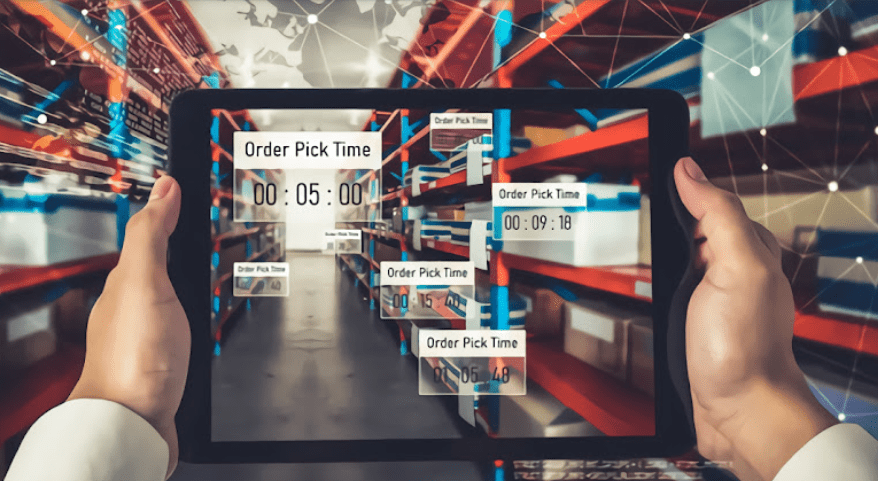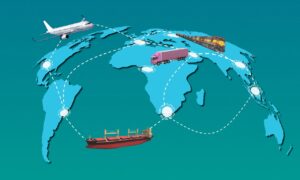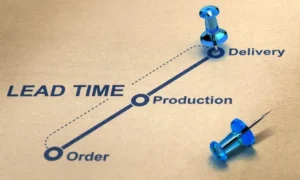Supply Chain is vital to those business operations that involve products. In recent years, supply chains have become increasingly complex to manage. With increased demands, big companies are leading the competitive edge by offering next-day and same-day delivery services, eventually raising customer expectations.
Supply Chains today have rapidly evolved from having a functional orientation to a global network of processes and tons of data. To meet these rising expectations, businesses seek transformation in their supply chains and look forward to integrating cutting-edge technologies like Artificial Intelligence and Machine Learning. These technologies are working wonders for them, and they are getting measurable benefits in the form of streamlined processes, increased efficiency, fewer supply risks, improved safety, and significantly reduced costs.
As per the latest findings from a global survey by McKinsey, there is nearly a 25% year-over-year increase in the use of AI amongst businesses, and they are experiencing higher revenues, with 44% of the companies claiming cost reductions as a major win from the technology implementation.
AI is proving to be the panacea for almost all challenges in supply chain management, especially in helping businesses with the increasing associated costs. So let us understand how you can use AI to cut supply chain costs.
Artificial Intelligence is where machines, especially computer systems, simulate human capabilities and work majorly based on data. AI allows us to harness the power of large amounts of data in less time. The technology analyzes data to get correlations and patterns and, based on these patterns, helps to make predictions about future states.
In simpler words, AI turns the data into information to get insights from, which can help companies leverage competitive advantage. The following are some real-time applications of AI to cut supply chain costs
AI helps organizations to derive superior Intelligence
In a manufacturing setting, usually, there are multiple processes, and each process involves different machines. Each machine generates massive amounts of data, making it difficult for humans to collate that extensive data and draw inferences from it.
Artificial Intelligence helps companies to automate various functions like collection, analysis, and interpretation of unstructured volumes of data and provides readily available intelligence reports that help supply chain teams to forecast and hence enable optimized logistics movement and saved costs. For example, AI-enabled inputs from spend analysis and contract management provide more accurate and faster information than manual analysis and help businesses strategize sourcing and save costs associated with warehousing, supply chain administration, and transportation.
Process Streamlining
AI can be largely helpful in streamlining processes in a manufacturing setting. For example, production scheduling is an arduous task when there are many processes involved. A scheduler must consider many data inputs to determine which components will be manufactured. They need to consider inventory levels, process intervals, demand patterns, availability of equipment & human resources, the most favorable time to make deliveries, and other risk factors.
However, using Artificial Intelligence, a pre-set manufacturing sequence gets implemented in the system, and one can get necessary data and information from time to time. Access to accurate information enables precise decision-making.
Accurate Forecasting
Businesses need to do better forecasting to balance supply and demand levels. Artificial Intelligence can help save plenty of human efforts and time and play a significant role in projection and forecasting. In addition, accurate forecasting allows organizations to optimize sourcing and save a lot of costs associated with warehousing, transportation, and administration.
Logistics management, especially, is a resource-intensive and dynamic field, and any slight variation can considerably impact supply chain efficiency, especially during peak hours. AI can also analyze data flowing in from different sources like social media, websites, and forums to track market scenarios and predict demand surges or supply chain bottlenecks. Such AI-enabled forecasting keeps businesses ahead of the curve compared to companies that rely entirely on human understanding and gut feeling to plan operations.
Improved Inventory Management
AI tools like Computer Vision technology help businesses to optimize inventory management and avoid overstocking or running short of goods during high-demand times due to estimation errors. With AI-based automation in inventory management, logistics companies can significantly enhance their cost utilization in warehousing. Automation enables complex procedures into swift protocols, because of which processes get streamlined and work gets quickened. Also, companies can save a huge chunk of human resources costs; there is also time-saving, which leads to reduced operational costs.
Optimized Fleet Movement
The AI applications that help companies to optimize fleet operations are the IoT (Internet of Things), Machine Learning, computer vision-based automated communication, and predictive analysis.
An AI-driven logistics platform could do accurate load-vehicle matching and use its onboard capacity to the optimum levels. This would not leave any scope for non-essential vehicle hires, and costs can be significantly reduced. Also, AI applications enable better resource allocation and effective asset deployment at the correct location, preventing unnecessary last-mile movements.
Final Thoughts
These are some cost-saving opportunities across supply lines where AI integration plays a significant role and businesses can achieve greater savings. The technology also offers scope for businesses to attain desired global standards.
The sooner you integrate AI solutions into your supply chain operations, the faster you can boost your efficiency and savings. These savings can also be passed on to vendors and consumers. In the longer run, goods acquired through sustainable practices can also boost marketing strategies, which will serve as a win for each process in the supply chain.
Visionify is a leading company offering customized state-of-the-art computer vision solutions for different industries. Our team of skilled AI and ML engineers and developers can help you set up your solution to enable you to acquire a competitive edge.



































